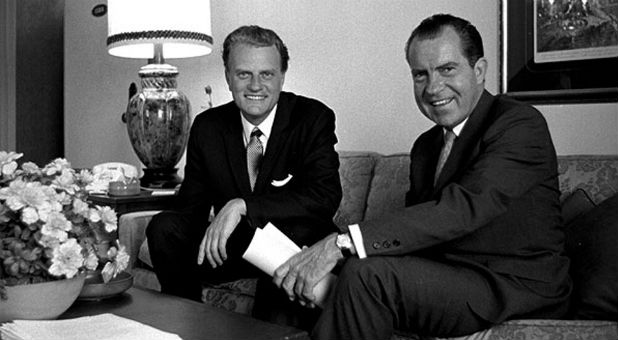Billy Graham Clarifies ‘Thou Shalt Not Judge’ Doctrine
It’s not just believers who like to throw around “thou shalt not judge,” when someone calls them out for various indiscretions.
The Bible verse is so popular, yet few know its original meaning, or the context.
“I don’t think it’s up to us to judge who is religious and who isn’t. I have my own beliefs, and I get upset when someone tries to question me about them or make me believe the same way they do. Didn’t Jesus say somewhere that we shouldn’t judge others?” one reader asked evangelist Billy Graham.
Here’s what the wise man had to say:
You’re probably thinking of Jesus’ statement in the Sermon on the Mount, commanding us not to judge or condemn others—something only God has the right to do. He said, “Judge not, and you shall not be judged. Condemn not, and you will not be condemned … ” (Luke 6:37).
This doesn’t mean, however, that we’re supposed to be indifferent to right or wrong, or be unaware of the dangers that come from immoral decisions or false beliefs. Nor does it mean we should overlook our own sins. In fact, later in the Sermon on the Mount Jesus urges us to judge between true and false ways of living (which we do by seeing their results). He also commands us to be judges of our own sins—which may be far greater than those we see in others.
I can’t help but wonder, however, why you don’t want anyone to challenge your beliefs or even talk with you about them. Only you can answer this, of course—but is it because deep down in your heart and mind you’re unsure of your beliefs and doubt if you’re actually right?
But you can be sure, by turning to Jesus Christ and committing your life to Him. He came into the world to give us the greatest gift of all—the gift of eternal life. Don’t let pride or anything else keep you from Christ. “You shall know the truth, and the truth shall set you free” (John 8:32).
![]()















































